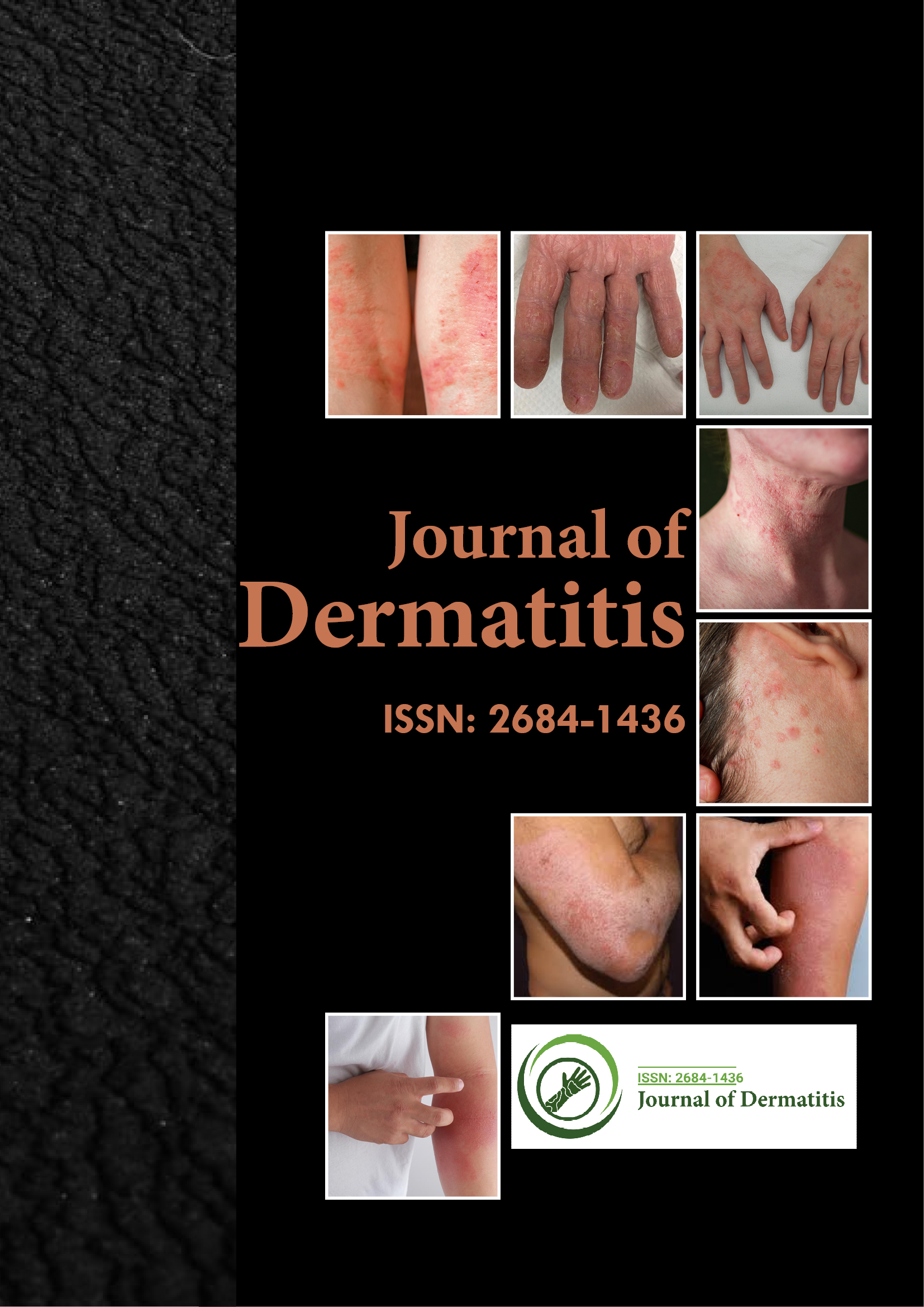Indexed In
- RefSeek
- Hamdard University
- EBSCO A-Z
- Euro Pub
- Google Scholar
Useful Links
Share This Page
Journal Flyer

Open Access Journals
- Agri and Aquaculture
- Biochemistry
- Bioinformatics & Systems Biology
- Business & Management
- Chemistry
- Clinical Sciences
- Engineering
- Food & Nutrition
- General Science
- Genetics & Molecular Biology
- Immunology & Microbiology
- Medical Sciences
- Neuroscience & Psychology
- Nursing & Health Care
- Pharmaceutical Sciences
Commentary - (2022) Volume 7, Issue 1
A Brief Note on Antioxidant in Skin Health
Hallab Boui*Received: 04-Jan-2022, Manuscript No. JOD-22-15520; Editor assigned: 06-Jan-2022, Pre QC No. JOD-22-15520; Reviewed: 20-Jan-2022, QC No. JOD-22-15520; Revised: 25-Jan-2022, Manuscript No. JOD-22-15520; Published: 01-Feb-2022, DOI: 10.35248/2684-1436.22.7.147.
Description
The term antioxidant is used throughout the health and beauty industry. However, many people are not completely clear about what antioxidants really are and why they are so beneficial to their health. Antioxidants are a group of naturally occurring compounds that protect cells from damage. However, there is evidence that antioxidant supplements are not as effective as dietary antioxidants. Antioxidants are especially rich in fresh fruits and vegetables. They are important not only for skin but also for your general health.
To fully understand antioxidants, we also need to understand free radicals. Free radicals are unstable molecules that have lost electrons. These unstable molecules are created by normal body processes such as digestion. It is also produced when exposed to excessive sun, pollution, radiation, cigarette smoke, etc. According to the free radical theory of aging, free radicals cause inflammation and premature aging of your body, including the skin. These unstable molecules steal electrons from other molecules, damaging healthy cells in the process. Antioxidants are the opposite foils of free radicals. They eliminate free radicals by providing electrons. This essentially inactivates free radicals and prevents them from damaging cells. For example, free radicals are used by the immune system to fight off bacteria. Therefore, they are important for your body’s functioning. This problem occurs when there are too many free radicals compared to antioxidants. Without enough antioxidants to keep excess free radicals away, cells can be damaged.
Benefits of skin care
Antioxidants are abundant in fresh and healthy foods. There are many studies confirming that an antioxidant-rich diet helps prevent aging and stays healthy longer. Many skin care products contain antioxidants in their formulations to deliver antioxidant effects directly to the skin. It is still somewhat unclear how effective topically applied antioxidants are. More research is currently being done, but so far it seems that topical antioxidants can offer a variety of benefits. Protection from UV damage: Sunburn damage is a major factor in skin aging. Antioxidants, when used with sunscreen, help protect against UV damage. Mild inflammation: Free radicals naturally cause inflammation. Antioxidants reduce inflammation and have a calming effect on the skin. Slow premature aging: Local antioxidants make the skin look more youthful and protect it from extrinsic aging (eg, premature aging caused by external factors such as chronic sun exposure, smoking, pollution). Antioxidants don’t seem to slow intrinsic (chronological) aging, however.
The ingredients below are some of the more well studied antioxidants used in skincare
Vitamin C: This is one of the most widely used and well-studied skin care antioxidants. You may also find it listed as Lascorbic acid or esterC. Vitamin C is the best antioxidant that helps stimulate collagen production and helps eliminate dark spots. However, it is notorious for its instability and can be alleviated to some extent by using a dark package, preferably an airlock.
Vitamin E: Vitamin E is not only an antioxidant, it also promotes healing and moisturizes. Ferulic acid: Topical ferulic acid may prevent damage from sunlight. Most effective when used in combination with topical vitamins C and E.
Retinol: Retinol is a form of vitamin A and is arguably the most effective overthecounter (OTC) ingredient for reducing fine lines and wrinkles. Retinol also speeds cell turnover and smooths the skin.
Coenzyme Q10: Coenzyme Q10 is one of the antioxidants that your body manufactures. It is naturally found in the skin but diminishes as we age. Coenzyme Q10 may improve skin elasticity and texture.
Botanical extracts: There are many botanical extracts used in skin care products for their antioxidant properties. The most common are green or white tea, coffee, calendula and rosemary, but there are many others. Botanical extracts are a very common ingredient in skin care and are often incorporated into blends.
Niacinamide: Also known as Vitamin B3, niacinamide improves skin tone and texture and helps eliminate dark spots.
Resveratrol: Resveratrol, a compound found in grapes, berries, red wine and tea, has UV protection and anti-inflammatory properties. It can also increase collagen and elastin. Curcumin: A relatively new product in OTC skin care products, curcumin is a polyphenol found in spice meric. It is believed to have anti-inflammatory and whitening effects without discoloring the skin (curcuma longa is known for its deep yellow colour).
Conclusion
Antioxidants aren’t just one ingredient, so you won’t see the word antioxidant in your skincare product’s ingredients list. Antioxidants instead refer to a broad group of ingredients that work in the same way: fighting free radical damage.
Citation: Boui H (2022) A Brief Note on Antioxidant in Skin Health. J Dermatitis.7:147.
Copyright: © 2022 Boui H. This is an open -access article distributed under the terms of the creative commons attribution license which permits unrestricted use, distribution and reproduction in any medium, provided the original author and source are credited.

